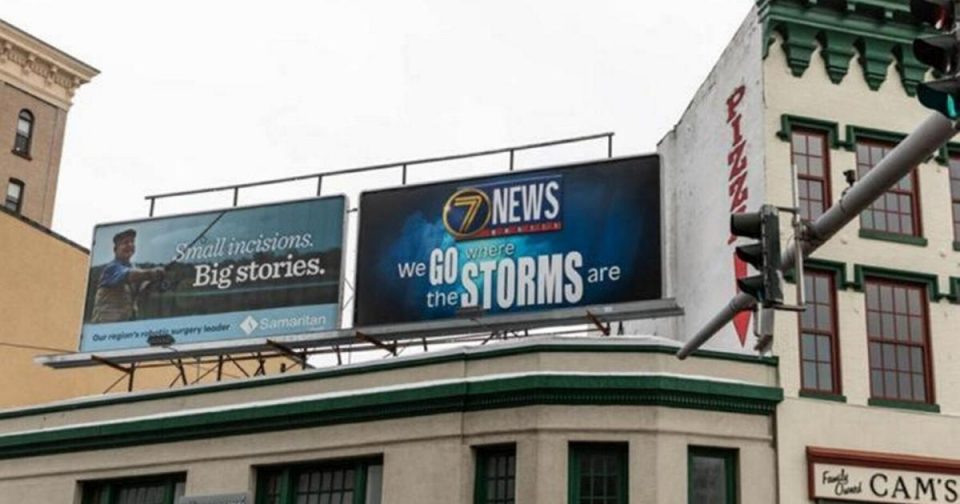WATERTOWN — Planning Board member Michelle L. Capone thinks that the city can expect more businesses requesting electronic billboards now that the first one went through the approval process earlier this week.
On Tuesday, the Planning Board recommended that Onondaga Development LLC, owned by developer P.J. Simao, be allowed to convert a traditional billboard on Factory Square into a digital sign.
Planners unanimously agreed to amend a Planned Development District, or PDD, to allow the two-sided digital billboard. In 1999, the city allowed Mr. Simao to erect an 11-by-50-foot billboard at that location.
The city has 24 PDDs — special districts that allow uses that would otherwise not be allowed in existing zoning. The PDDs were generally created to erect billboards along Interstate 81. Several can be seen along the busy thoroughfare that runs through the north country.
Mr. Simao was the first developer to request changing a PDD to allow for an electronic billboard.
“I think you’re going to have more businesses wanting digital billboards,” Ms. Capone said after the vote.
The issue will now go before the City Council for final approval later this month.
Before the vote, Ms. Capone said the city will look at digital billboards on “a case-by-case basis.” This one cannot be larger than the existing billboard and must be built at least 35 feet above the sidewalk.
“I have no problem with it,” Planning Board member Lawrence J. Coburn said.
The current billboard sits in an empty grass field adjacent to the city’s Factory Square Park along the Black River.
Afterward, Robert J. Busler, a surveyor representing Mr. Simao, declined to comment about the Planning Board granting approval for the digital billboard.
In recent years, electronic billboards have been springing up all over the country, including several along Interstate 81.
Local real estate developer Jake Johnson had wanted to turn two billboards on top of a building he owns at 104 Court St. into electronic billboards, but the state Department of Transportation ruled against them because they would violate the federal Highway Beautification Act of 1965.
Since then, state Assemblyman Mark C. Walczyk, R-Watertown, has been working on getting the state to change its mind and allow Mr. Johnson’s two digital billboards.


